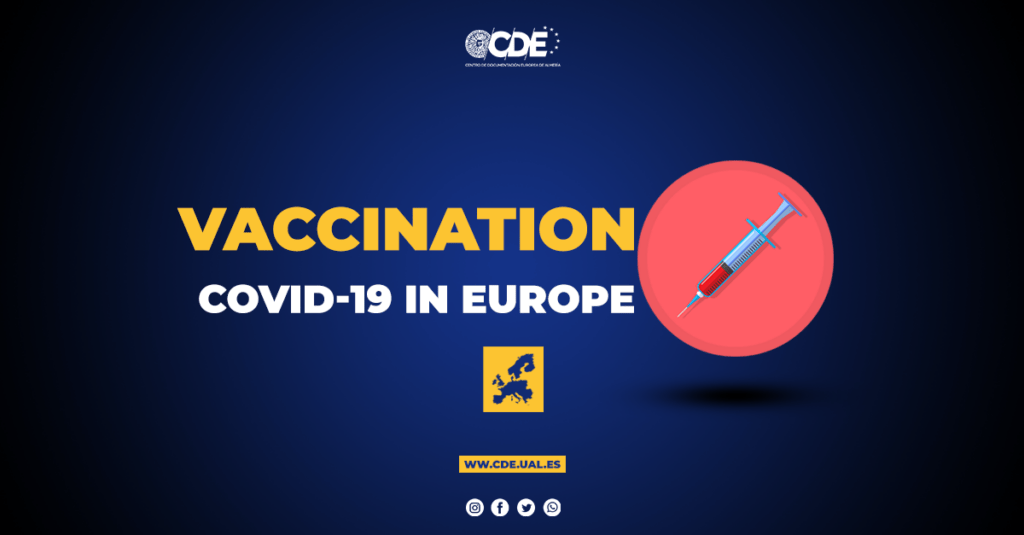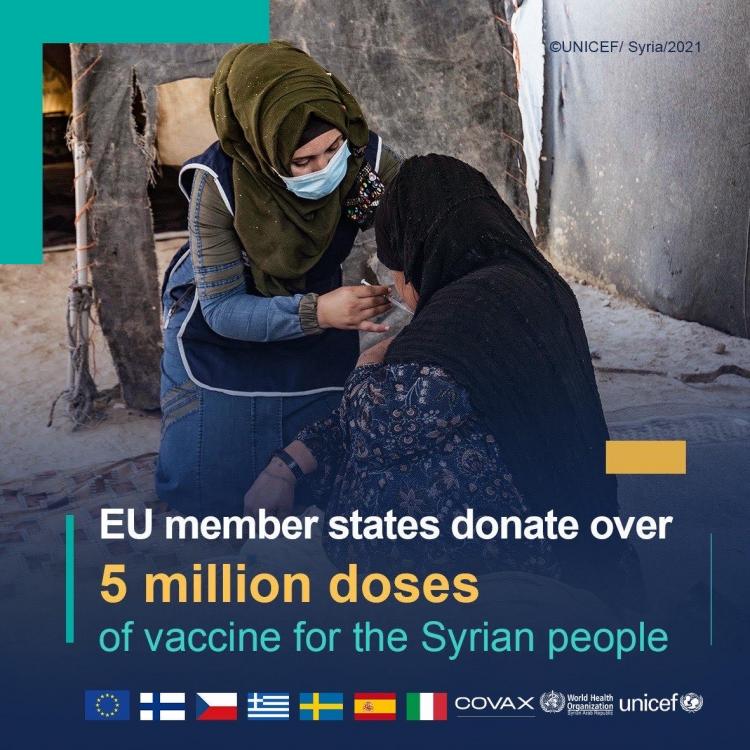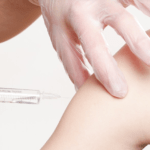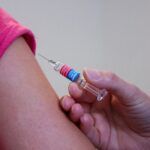EMA starts rolling review of COVID-19 Vaccine HIPRA
EMA’s human medicines committee (CHMP) has started a rolling review of COVID-19 Vaccine HIPRA (also known as PHH-1V). This protein-based vaccine is being developed by HIPRA Human Health S.L.U. as a booster vaccine for adults who have already been fully vaccinated with a different COVID-19 vaccine.
The CHMP’s decision to start the rolling review is based on preliminary results from laboratory studies (non-clinical data) and clinical studies in adults. The clinical studies compared the immune response to the vaccine (measured by the level of antibodies against SARS-CoV-2) with that seen with the mRNA vaccine Comirnaty. Preliminary results suggest that the immune response with COVID-19 Vaccine HIPRA may be effective against SARS-CoV-2, including variants of concern such as Omicron.
Source: European Medicines Agency
Evolution of vaccination and third dose against COVID-19 in Europe
Since last September, most European countries have started to administer the third booster dose of the COVID-19 vaccine to some sectors of the population. As of March 21, the country in which the largest number of citizens have received the booster dose is Iceland, where 67.81% of citizens have already received it. It is followed by Malta with 67.44% of the population and Italy with 63.76%. Observing the data available for Spain, 52.01% of its population has already received the booster dose.
Below, we show how the administration of the booster dose is progressing in the countries that have administered the most vaccines of this type in Europe as well as the percentage of fully vaccinated citizens per country:
[table id=8 /]
Source: Our world in data
European countries with the highest number of hospitalizations
According to data provided by Our World in Data as of 21/03/2022, the country with the highest number of hospitalizations on March 20 was France with a total of 20,566 followed by Italy with 8,897 hospitalizations, and the United Kingdom with 14,671 (data recorded March 17).
The latest data for Spain recorded 4,163 hospitalizations as of March 17.
Data from March 17 shows that Belgium recorded 2,263 hospitalizations, Israel 801 (March 20), and the Netherlands 1,723 (March 20).
European countries with the highest number of ICU patients
As of March 21, the data provided by Our World in Data show that the European country with the highest number of hospitalized patients admitted to the ICU on March 20 was Germany, with a total of 2,272. This was followed by France, Spain and Italy with 1,642, 571 (data from March 17) and 467 respectively.
United Kingdom registered 292 patients in the ICU on March 17.
As for Belgium, the latest data was recorded on March 17, indicating that it had a total of 173 patients in the ICU.
On the other hand, Israel recorded 165 ICU patients and the Netherlands 137 on March 20.
#TeamEurope – Over 5 million doses donated to Syria
As of February 2022, the EU has donated over 5 million doses of vaccine for the Syrian people. This includes donations from Greece (144.000 doses), Czechia (38.400 doses), Sweden (536.640 doses), Finland (7.800 doses), Spain (381.600 doses) and most recently Italy (3.996.000 doses), marking the biggest vaccine donation to Syria to date.
These donations, which were facilitated by COVAX, are part of the European Union and its member states’ #TeamEurope ongoing efforts to provide Syrians across the country with the adequate protection against the COVID-19 pandemic.
The EU is grateful to its partners, including WHO and UNICEF, for facilitating their delivery, rollout and administration.
The AEMPS authorizes the Phase III clinical trial of Hipra’s vaccine against COVID-19
The Spanish Agency of Medicines and Health Products (AEMPS) has authorized the Phase III clinical trial of the vaccine against COVID-19 of the biotechnological pharmaceutical company Hipra. This is the first Phase III trial of a vaccine developed in Spain. Following the results obtained in previous trials which have demonstrated a good safety profile and adequate efficacy in terms of generation of neutralizing antibodies, this new trial seeks to evaluate the safety and tolerability of Hipra’s vaccine as a booster dose and is the necessary preliminary step to submit an application for authorization to the European Medicines Agency (EMA).
This phase will be carried out in 17 Spanish hospitals and it is planned to add one center in Italy and two in Portugal. The study, which has received scientific and regulatory advice from the AEMPS, will involve some 3,000 volunteers over 16 years of age. The context and the pandemic situation have changed over time, so clinical trials have to adapt to this new context in which vaccines are already licensed and a majority of the population has already received a full vaccination regimen. Therefore, people who take part in this study will have to have received other primary vaccination schedules that include different combinations.
In order to participate, volunteers must have received at least three months ago one or two doses of Comirnaty, Spikevax, Vaxzevria, COVID-19 Vaccine Janssen or combinations of these vaccines. If the volunteer has had COVID-19 for one month or more and has not been admitted to a hospital, he or she can still participate in the trial.
It is important to emphasize that, unlike other clinical trials in which there is the possibility of receiving a placebo, in this study all participants will receive an active vaccine.
The status and data of the Phase II clinical trial, which was approved by the AEMPS on November 15, can be consulted in the Spanish Clinical Trials Register (REec) at the following link.
Hipra’s vaccine against COVID-19 is a recombinant adjuvanted protein vaccine containing the receptor-binding region of the alpha and beta variants of SARS-CoV-2, and would be able to generate an immune response against different variants of the virus. This protein vaccine, if licensed, would complement the portfolio of vaccines from different platforms already available.
Source: Agencia Española de Medicamentos y Productos Sanitarios
EU COVID Digital Certificate: 270-day acceptance period for vaccination certificates starts tomorrow
As of today, February 1, new rules for the 270-day acceptance period for EU digital COVID certificates for the purpose of facilitating travel within the EU will start to apply.
Under the new rules, set out in the Commission Delegated Regulation of 21 December 2021, Member States will be required to accept vaccination certificates for a period of 270 days (9 months) from the completion of the primary vaccination. In the case of a single-dose vaccine, this means 270 days from the first and only injection. In the case of a two-dose vaccine, this same period is 270 days from the second injection or, according to the national vaccination strategy, after the first and only dose after recovery from the virus.
Member States must not stipulate a different acceptance period for travel within the European Union. The standard acceptance period does not apply to booster dose certificates.
Justice Commissioner Didier Reynders said, “From tomorrow, there will be a common EU-wide standard on the acceptance period for vaccination certificates from the primary vaccination when used for cross-border travel. This reflects the declining protection of the vaccine and highlights the importance of the booster dose. The Commission will decide, with the support of experts from the European Centre for Disease Prevention and Control and the European Medicines Agency, whether future adaptations of this rule are necessary.”
These rules only apply to vaccination certificates used for travel from one EU country to another. Member States may apply different rules when using the EU digital COVID certificate in a national context, but are invited to conform to the acceptance period set at EU level.
As of today, new rules should also apply with regard to the coding of booster doses on the certificate.
As already clarified in December, booster doses will be recorded as: 3/3 for a booster dose following a 2-dose primary vaccination series and as 2/1 for a booster dose following a single dose vaccination or a dose of a 2-dose vaccine administered to a recovered person. Certificates issued differently prior to such clarification should be corrected and reissued to ensure that booster doses can be distinguished from the full vaccination situation.
More information on the EU COVID Digital certificate can be obtained from the dedicated website.
Source: European Commission
EMA recommends conditional marketing authorisation for Paxlovid
EMA’s human medicines committee (CHMP) has recommended granting a conditional marketing authorisation for the oral antiviral medicine Paxlovid (PF-07321332 / ritonavir) for the treatment of COVID-19. The applicant is Pfizer Europe MA EEIG.
The Committee recommended authorising Paxlovid for treating COVID-19 in adults who do not require supplemental oxygen and who are at increased risk of the disease becoming severe.
Paxlovid is the first antiviral medicine to be given by mouth that is recommended in the EU for treating COVID-19. It contains two active substances, PF-07321332 and ritonavir, in two different tablets. PF-07321332 works by reducing the ability of SARS-CoV-2 (the virus that causes COVID-19) to multiply in the body while ritonavir prolongs the action of PF-07321332 enabling it to remain longer in the body at levels that affect the multiplication of the virus.
In reaching its conclusion, the CHMP evaluated data from a study involving patients with COVID-19 showing that treatment with Paxlovid significantly reduced hospitalisations or deaths in patients who have at least one underlying condition putting them at risk of severe COVID-19. The analysis was done in patients who received Paxlovid or placebo (dummy treatment) within 5 days after COVID-19 symptoms began and who did not receive, nor were expected to receive, treatment with antibodies. Over the month following treatment, 0.8% (8 out of 1,039) of the patients receiving Paxlovid were hospitalised for longer than 24 hours, compared with 6.3% (66 out of 1,046) of those who received placebo. There were no deaths in the Paxlovid group and 9 deaths in the placebo group.
The majority of patients in the study were infected with the Delta variant. Based on laboratory studies, Paxlovid is also expected to be active against Omicron and other variants.
The safety profile of Paxlovid was favourable and side effects were generally mild. However, ritonavir is known to affect the action of many other medicines, and warnings and advice have been included in Paxlovid’s product information.
More information: European Medicines Agency (EMA) News
Related news
Actualización nº 632. Enfermedad por el coronavirus (COVID-19). 09.09.2022
More information: Ministry of Health
Other news
EMA: Regulating globally an aligned response to Omicron variant
On 12 January, regulators from around the world discussed the global regulatory response to the COVID-19 Omicron variant during a workshop, co-chaired by the European Medicines Agency (EMA) and US Food and Drug Administration (FDA) under the umbrella of the International Coalition of Medicines Regulatory Authorities (ICMRA). The goal of the meeting was to review available evidence for the effectiveness of the approved COVID-19 vaccines against the Omicron variant and reach alignment on the key regulatory requirements to support development of a possible adapted vaccine.
Welcoming the participants from the 24 members and 13 associated members and experts from the World Health Organization (WHO) and the European Commission, Emer Cooke, EMA’s Executive Director and chair of ICMRA said: “Today is not only about the regulatory response to Omicron but is also part of setting the scene for a more strategic discussion about what types of vaccines might be needed in the long-term to adequately manage COVID-19. These decisions are not for regulators alone. Collaboration is needed across all the actors in this space, including public health decision-makers at national, regional and global level. In that context, we need to emphasize the importance of the collaboration with WHO to take a decision on strain updates”.
While most available data suggest that the approved COVID-19 vaccines are losing effectiveness in protecting against infection and mild disease, they continue to provide high protection against people developing severe disease and the need for hospitalisation linked to the Omicron variant.
When looking at regulatory requirements for any variant vaccine, there was broad agreement that clinical data are needed for approving a new updated vaccine.
The workshop was co-chaired by Peter Marks, Director of the Center for Biologics Evaluation and Research (CBER) at US FDA, and Marco Cavaleri, Head of Biological Health Threats and Vaccines Strategy at EMA, and regulators from South Africa and Israel shared their experiences. It was the third in a series of workshops on COVID-19 vaccine development and virus variants held by ICMRA in 2021. These workshops underline the power of ICMRA’s leadership in achieving alignment between regulators to expedite and streamline global development and authorisation of new or modified COVID-19 vaccines against emerging coronavirus variants. More details on the discussions and the outcomes of the meeting will be shared in the coming days.
More information
COVID-19 vaccines remain effective against hospitalization caused by the Omicron variant.
EMA continues to monitor emerging data on the effectiveness of vaccines against COVID-19, including disease caused by the Omicron variant which is now spreading rapidly across the EU.
EMA continues to monitor emerging data on the effectiveness of vaccines against COVID-19, including disease caused by the Omicron variant which is now spreading rapidly across the EU.
Results from recently published studies show that vaccine effectiveness against symptomatic disease is lower for Omicron than for other variants and tends to wane over time. As a result, more vaccinated people are likely to develop breakthrough disease due to Omicron.
However, these studies also show that vaccination continues to provide a high level of protection against severe disease and hospitalisation linked to the Omicron variant. The latest evidence, which includes real-world effectiveness data, also suggests that people who have had a booster dose are better protected than those who have only received their primary course.
EMA will continue to review data on vaccine effectiveness and severity of the disease, as well as the evolving landscape in terms of circulating variants and natural exposure to Omicron, as they become available. The outcome of these assessments may impact future vaccination strategies recommended by experts in EU/EEA Member States.
EMA emphasises that vaccination remains an essential part of the approach to fighting the ongoing pandemic. In line with recommendations by national authorities, efforts should continue to increase full vaccination uptake in individuals who are currently unvaccinated or partially vaccinated and to accelerate the roll-out of booster doses.
More information
WHO: Omicron Wave Threatens to Overwhelm Healthcare
In statements made last Tuesday, January 11, Dr. Hans Henri P. Kluge, WHO Regional Director for Europe, warned that:
The Omicron variant represents a new tidal wave from west to east across the Region, adding to the Delta wave that all countries were managing until the end of 2021. Each country’s response should be based on its epidemiological situation, available resources, level of vaccination, and socioeconomic context.
In the first week of 2022, more than 7 million new cases of COVID-19 were reported in the region, more than doubling in a two-week period.
As of January 10, 26 countries report more than 1% of their population contracting COVID-19 each week.
Mortality rates remain stable and continue to be higher in countries with high incidence of COVID-19, combined with lower uptake of vaccination.
Fifty of the 53 countries in Europe and Central Asia have now reported cases of Omicron. It is rapidly becoming the dominant variant in Western Europe and is spreading in the Balkans.
At this rate, the Institute for Health Metrics and Evaluation (IHME) predicts that more than 50% of the region’s population will be infected with Omicron in the next 6-8 weeks.
Data collated in recent weeks confirm that Omicron is highly transmissible, as its mutations allow it to attach to human cells more easily, and it can infect even those who have been previously infected or vaccinated.
- First, for countries that have not yet been affected by the Omicron surge, there is a window of opportunity closing to act now and plan for contingencies. Omicron is moving faster and with greater amplitude than any SARS-CoV-2 variant we have seen before.
- Second, when the Omicron surge has begun, the priority must be to prevent and reduce harm among the vulnerable and minimize disruption to health systems and essential services.
- The third point concerns schools. Keeping schools open has important benefits for the mental, social and educational well-being of children. Schools should be the last places to close and the first to reopen.
In summary, the 5 plus 1 pandemic stabilizers that have guided our response in recent months are as relevant to dealing with Delta or Omicron today as they have ever been. They remain our mantra: 1. vaccination, 2. third doses or boosters, 3. increased use of facemasks, 4. indoor ventilation, 5. implementation of new clinical protocols.
More information
More information
Vaccination evolution and hospitalization in Europe – November
Vaccines authorized by the European Union
| Company | Type of vaccine | Number of doses
(needed per person) |
Number of doses
(secured) |
Status |
|---|---|---|---|---|
| BioNTech and Pfizer | mRNA | 2 doses | 600 million | Approved |
| Moderna | mRNA | 2 doses | 160 million | Approved |
| CureVac | mRNA | 2 doses | 405 million | Development ongoing |
| AstraZeneca | adenovirus | 2 doses | 400 million | Approved |
| Johnson & Johnson/Janssen Pharmaceuticals | adenovirus | 1 dose | 400 million | Approved |
| Sanofi-GSK | protein | 2 doses | 300 million | Development ongoing |
Coronavirus Present situation in Europe
Coronavirus Present Situation by Continents
Coronavirus Present Situation Western Pacific, South East Asia Region, and Eastern Mediterranean
Coronavirus Present situation in America








How do I find out was vacine was given to me today in Olula del Rio
We can not help you with that. In this document you will find all the information about vaccination in Andalucia:
https://www.juntadeandalucia.es/organismos/saludyfamilias/areas/salud-vida/vacunas/paginas/covid19.html